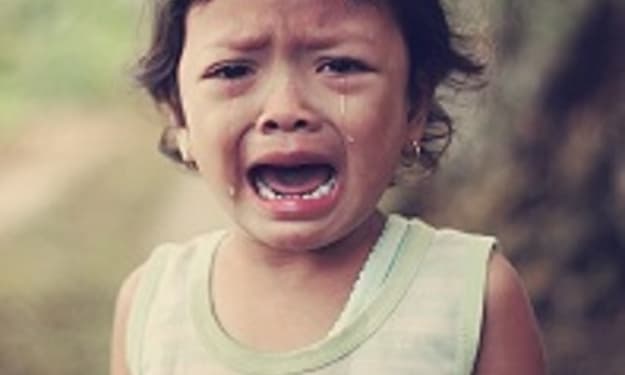What Children in Foster Care Want
From a Caseworker's Perspective

On average, there are approximately 420,000 children in foster care each day. Some are in temporary placements, while others are long-term. Children in care are as young as newborns and as old as 21 years of age. As a former adoption worker, in preparing children for adoption, I spoke with them about their family, desires, dreams, and expectations.
A popular tool for adoption and foster care workers was the Lifebook, a personal book that was created to help children learn and understand their background, to prepare them for adoption, and to help foster parents with their new foster placement. The Lifebook is a personal belonging that should always be accessible to the child. The book allows a child to communicate freely in their own way. The Lifebook was always a tool that I used to help a child open up and share with me. I was able to learn what many children in care wanted, whether it be a small trinket or a visit with significant family members.
Introductions
Many children in foster care do not want to be recognized as a foster child. They want to blend with their foster family, so that refer to their foster parents as mom and dad, mama and daddy, or nana or papa. Likewise, when introducing them to others, they prefer to be introduced by their name. The do not want to be introduced as "Joey, our foster son." Caseworkers soon became politically correct and sensitive and began referring to children in care as a "a child, who is in foster care" instead of "foster child."
Personal Belongings
Children in foster care experience several moves, especially if they have a long-term plan. They cherish their belongings and they want their belongings to be move with them to their new placements. Unfortunately, in most cases personal belongings are left at their previous placement. Pictures of their siblings, pets, biological parents, or significant people are lost. Sometimes pictures of school friend or team pictures do not go with them to their new placement. In addition to personal pictures, toys, clothing, books, and other personal items are loss or displaced. It is important that these cherished items are moved with the child in foster care, because they have so little belongs and many of them are symbols of important memories for them.
Family Visits
The majority of children in foster care are bonded with significant people, who they have come to love and trust. Despite what many may think, children in foster care are extremely bonded to their abusers, as well. If you are interested in parenting a child, who is in foster care, it is important that you understand the relationship between the child and significant people in their lives. You can expect that the child will want to visit with his brother or sister, grandparents, aunts and uncles, and even neighborhood friends. However, you must also understand that it is the custodial agency and/or therapist who determine the factors related to visitation.
Abusive parents may have court order visitations related to their treatment plan. These visits are usually coordinated by the foster care worker and are usually supervised. If siblings are in different placements, the foster care worker, and the foster parents usually coordinated visits. All visits must be cleared by the custodial agency and must have proper supervision to assure the safety of the children involved. Healthy relationships need to continue for the child. If visitation is deemed unhealthy, the discontinuation of the visits will require recommendation by the child's therapist. If the biological parent or significant person is incarcerated, the child must be transported for the visit, as required by the Family Court.
To Belong
Children in foster care want to fit in, yet maintain their identity. They want to be able to participate in activities that interest them. It is important that they are allowed to explore their interest and talents. Unfortunately, finances may prevent them from being able to participate in extracurricular activities such as dance, little league sports, music, or drama. The ability to explore their interest not only help them grow emotionally, it also help them enhance their social skills. Everyone wants to feel accepted and it is no different for children who are in foster care. If you are parenting a child in foster care or plan to become a foster parent, you will need to work with your caseworker to explore resources to help the child develop a sense of belonging.
Children in foster care are sometimes unable to express their desires, so as a parent, you must be aware of their needs and commit to meeting the needs of the child, whether it be emotionally or physically. The well-being of the child is paramount to a successful placement for both you and the child.






Comments
There are no comments for this story
Be the first to respond and start the conversation.